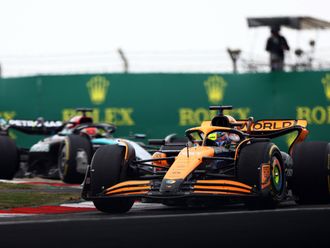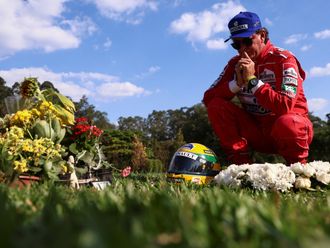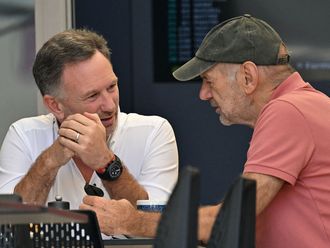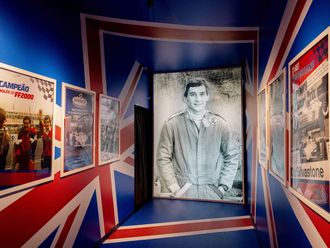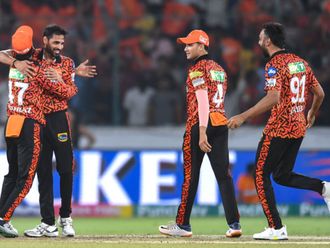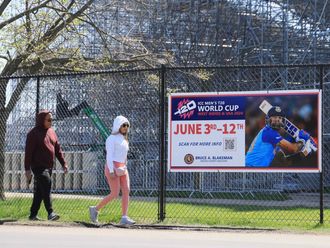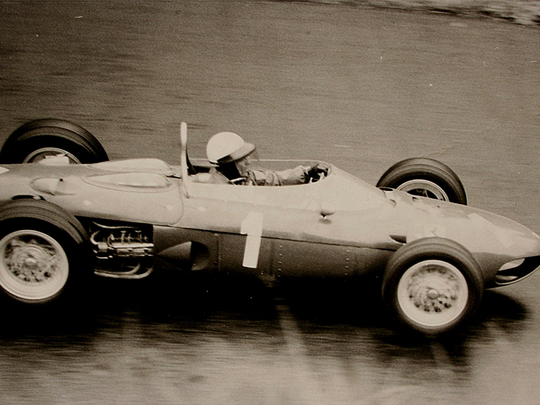
As a young boy I dreamed of being a racing driver. It was all that mattered to me, even more than my education which, as it turned out, did indeed suffer at the hands of Mother Motorsport. My helmet was on my head 24/7, I spent every waking moment at my local kart circuit driving karts, and I talked of nothing else.
I raced in a humble karting series that toured South East England – Formula 6 – but by the time I was 21 things had began to peter out. And by “things” I mean money.
Unlike the prima donnas of today – I bear no grudge, honestly – I wasn’t part of a fancy race team with trucks, personalised short sleeve shirts, and eye-watering fees just to breathe in their awnings: It was just me and a trailer and my parts shop was the paddock bins after a race.
By the time I was 22, however, that was that. I had gone as far as I could go with my pitiful budget (yet still an annual figure in the thousands). My last kart is still rusting away in an old shipping container, not used since that last race.
If you’ve ever been in a paddock during a race meeting - regardless of which discipline - I’d bet my last farthing that you’d of overheard someone say “motorsport is just too expensive these days”. Codswallop, they don’t know what they’re talking about. It has actually never been more affordable or more accessible to the proletariat.
No, really, think about it. After the Second World War, Britain – and the rest of what was left of Europe – was littered with abandoned airfields. And to see that they didn’t go to waste, the gentry decided that they would make jolly corking race tracks. And so they did. Every weekend the Idle Rich would turn up in their Maserati A6GCSs and Jaguars and give the old girls a darn good thrashing.
When Formula 1 became a championship series in 1950, the drivers hadn’t arrived by climbing the ranks of junior formulae, no such thing existed; they were there solely because they were stinking rich. And don't forget the gap between rich and poor was far greater in those post-war years. To afford to go racing back then you needed to be a Richard Branson or Donald Trump. Archie the paperboy didn't stand a chance.
If the Pathe newsreels have taught us anything about racing in those days, it’s that the European elite were starkly slashed in numbers… Many dying fiery deaths.
So what changed as we reached the 1960s? Not much. Again, the Idle Rich could just simply join in if they so wanted, although most by this point would have been competing in F2 or saloon or sports cars first – but again this was an expensive pursuit. It was the same in the 1970s, but by now there were a handful of junior series like Formula Ford and Formula 3 available.
Such things were billed as “racing on a budget”, but the word “budget” doesn’t guarantee affordability. The route to professional racing was streamlined further by the 1980s, with karting a more common starting point for future champions.
As sponsorship influence became greater and greater, racing teams were less inclined to give un-tested drivers, such as the wealthy wannabes, a “free” pass to the big leagues. They needed drivers with a degree of skill at least. But skill alone wasn’t enough, they still had to come with money.
As the Idle Rich died out, they were replaced by a wave of aspiring racers from all over the world, but to even begin a career in racing they needed money. In some cases it was a wealthy a father, others had sponsorship – but who is going a sponsor a nobody? Some even got to the top by trading off a prominent family name.
So whichever way you cut it, you have always needed money to go racing. The bow-tie racing era of the 1950s took up F1 because there weren’t many alternatives to blowing their family estates. But since the inception of more junior formulae, these rich-boys got filtered out earlier on and thus avoided the humiliation of falling into the Monaco harbour in front of tens of millions of people.
Think how many lives were saved...
So why is it all so horribly expensive? It’s something I was asked a lot when I was a circuit manager, and the truth of the matter is two-fold: Firstly, there really is no profit in competition. Modern day racing teams survive mainly on sponsorship money or prize funds. That’s not just Formula 1, but right down the motorsport ladder. No team is a charity, and their racing seats have to bear a price tag to cover the overheads.
Secondly, and as a result of the above, people can charge a fortune when they know their customer really wants something. You don’t become a racing driver because you need to, you become a racing driver because you want to. You will therefore pay any price if that’s what it takes.
This brings me to the topic of so-called “pay drivers”. With the exception of a minority, most Formula 1 drivers since 1950 have been pay drivers, bringing with them sponsorship to help balance the team’s books in exchange for a glittering career in the cockpit.
We boo and hiss at the idea of the pay driver, but why? Ayrton Senna started as a pay driver, so did Michael Schumacher. They however had talent and quickly became marketing brands themselves, unlike other pay drivers such as Pedro Diniz and Riccardo Rosset, who were just plain awful.
Since the 1990’s, though, teams like McLaren have spearheaded scholarship schemes, which has given us the likes of Lewis Hamilton. Red Bull’s system gave us Sebastian Vettel and Ferrari have given us several more. It’s a very intelligent way of dong it; ensuring that a driver is nurtured from youth and learns racing the proper way, gradually moving up through the system, gathering experience from sage old veterans. Indeed, most drivers on the F1 grid today have come through these systems to some extent.
Few make it, most don’t. But one thing every last one of them has in common is, you guessed it, money from the start. Yet still, even with all the zeroes on the cheques, it’s much easier now than it used to be.
Fear not, though, traditionalists; the Idle Rich haven’t gone away; they just pay someone else to do the winning for them these days.
…I wish one of them had found me.


